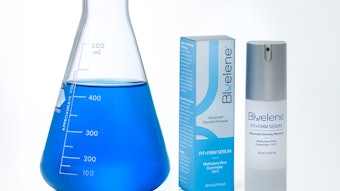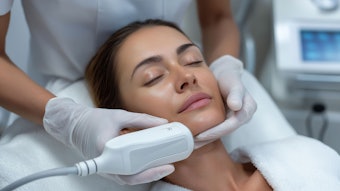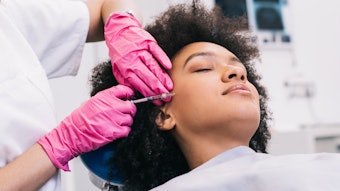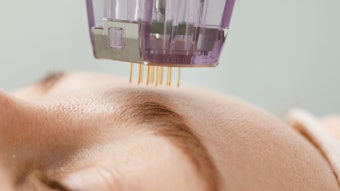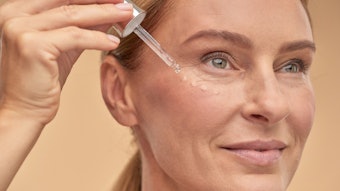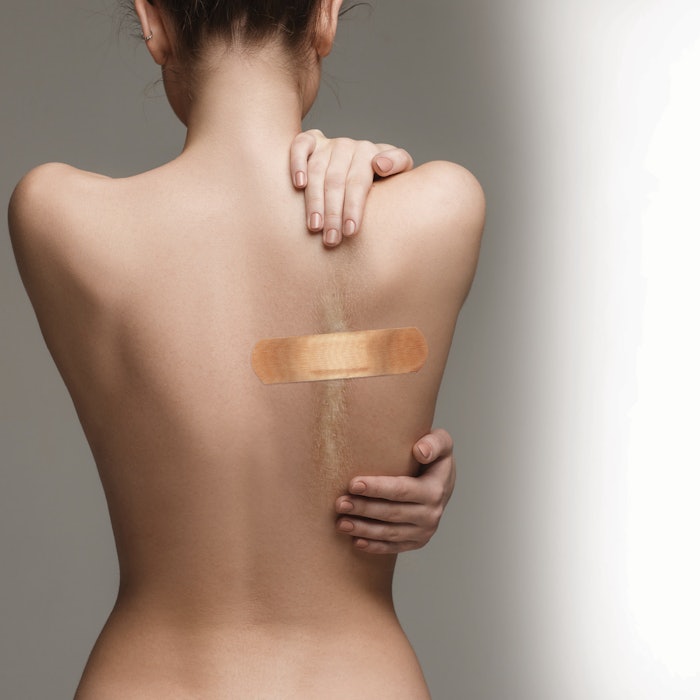
Abnormal scarring can be of four distinct morphologies: (1) Flattened and Stretched, (2) More Constricted than usual, (3) Suppressed or Atrophic and (4) Elevated from the skin surface. A flattened scar is a normal scar with normal subjective skin color and stretched scars are formed when scar site and closure are constantly under mechanical tension, e.g. striae (stretch marks). Constricted scars are formed in 2nd-, 3rd- and 4th-degree burns. Suppressed scars are formed below the surface of the surrounding skin, such as in 2nd- and 3rd-degree acne (cuneiform), and the elevated scar morphology is usually composed of keloids and granulomas. The granulomas that sometimes occur from aggressive microneedling, migrating fillers, etc. are in fact, another form of scar!
A mature cutaneous scar has almost 50% protein content, which consists of 80–90% of Type I collagen and 10-20% of Type III Collagen. In normal circumstances, the collagen in the skin is arranged in a basket weave pattern, but in scar tissue, it is arranged in bundles parallel to the skin surface. The basement membrane of the epidermis that develops over scar tissue is flatter than normal because it does not contain the rete pegs that normally penetrate the dermis. A cutaneous scar also does not contain dermal appendages (hair follicles, sebaceous glands) and the stem cells that typically inhabit these structures.
Dr. Jayant N. Lokhande, M.D., M.B.A., is an expert in Botanical Drugs & Biotechnology Business Management. He has successfully strategized and formulated products for several cosmetics, nutraceuticals, pharmaceuticals and medical foods companies globally. He has significant clinical experience especially in using Botanical Drugs and Medical Foods for Complex and Chronic Diseases. He is currently working as Chief Scientific Officer at DMK Skincare and his responsibilities include Innovation and End-Users Education Development.
DMK founder – Danné Montague-King A pioneer in his industry, Danné has seen the depths of depression associated with poorly functioning skin. In fact, his everlasting passion was born from his dissatisfaction with his own acne as a teen. Not understanding the condition completely, and after failed attempts from top US dermatologists to cure his acne, Danné took things into his own hands and desperate for a cure, became his own guinea pig. A string of breakthroughs, trials and tribulations, and many travels would follow, until he found his first true breakthrough in the 60’s involving vitamin C therapy. That’s all it took to spark what would be decades of developing successful treatments and products that would combine to form the iconic brand that is DMK – sold throughout 30 countries.


